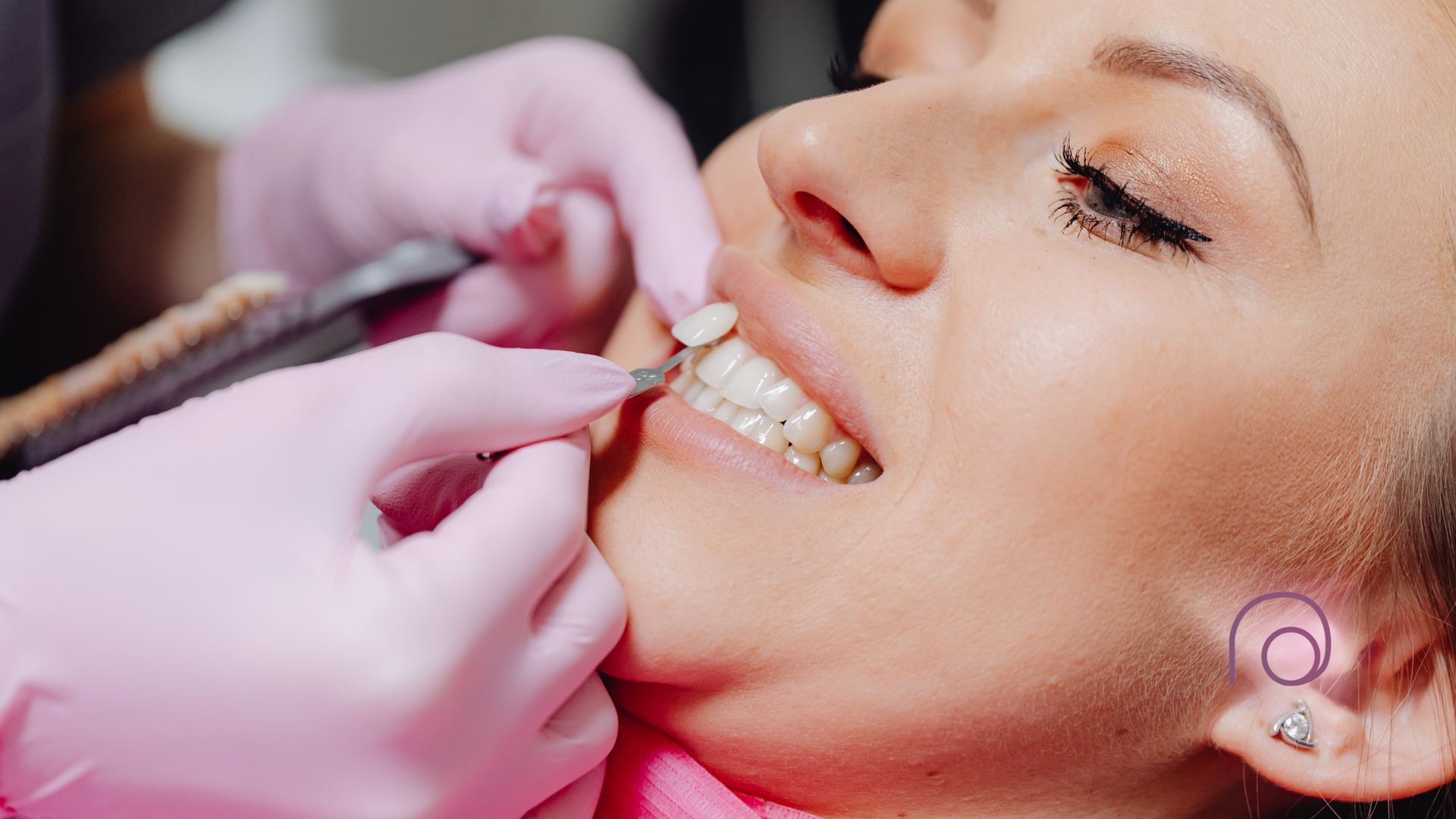The Veneers Journey: Process, Longevity, and Essential Care Tips

Source: Dr. Marketing
A confident smile can transform more than appearance — it can influence how people communicate, interact, and even how they feel about themselves. For patients seeking to improve chipped, stained, misaligned, or uneven teeth, dental veneers are one of the most versatile and effective cosmetic treatments available. Veneers are thin shells of porcelain or composite resin that are bonded to the front surface of teeth, instantly creating a brighter, more uniform smile.
Although veneers are increasingly popular, many patients still have questions about the procedure. What exactly is the process for getting veneers? How long can they last? And what kind of care do they require to remain beautiful and functional? We believe patients deserve clear, educational answers before choosing any treatment. This guide explores veneers in detail, helping patients make informed decisions about whether they are the right choice.
What Are Veneers?

Veneers are custom-made coverings designed to improve the appearance of teeth. Unlike crowns, which cover the entire tooth, veneers only bond to the front surface. Their thin, durable design allows for a dramatic improvement in aesthetics with minimal alteration of natural tooth structure. Veneers are commonly used to correct:
- Discolored or stained teeth that do not respond to whitening.
- Chipped, cracked, or worn-down teeth.
- Teeth with gaps or uneven spacing.
- Slightly misaligned or irregularly shaped teeth.
Because veneers are tailored to each patient, the results look natural and complement facial features. We use advanced planning tools to ensure veneers for patients in San Diego match surrounding teeth in shape, size, and shade.
Types of Veneers

Veneers are not all the same. Patients have options depending on their goals, budget, and dental condition.
- Porcelain Veneers: Known for their strength and natural appearance, porcelain veneers mimic the translucency of enamel and resist stains. They typically last longer than other options.
- Composite Veneers: Made from resin material, these veneers can often be applied in a single visit. They are more affordable but generally do not last as long as porcelain.
- No-Prep Veneers: In certain cases, ultra-thin veneers may be applied without significant enamel removal. While not suitable for everyone, they can provide a conservative option for minor cosmetic improvements.
We help families weigh the advantages of each type, ensuring treatment is tailored to their individual needs.
The Process of Getting Veneers

The veneer process involves careful planning and precision to achieve results that are both functional and aesthetic.
Step 1: Consultation and Evaluation
The journey begins with a consultation. During this appointment, the dentist discusses goals, evaluates oral health, and determines if veneers are appropriate. Patients with untreated cavities, gum disease, or severe misalignment may require preliminary treatment before veneers.
Step 2: Smile Design and Planning
A personalized treatment plan is created. Digital imaging, mock-ups, or trial veneers may be used to preview the expected outcome. This stage ensures the final result enhances not only the teeth but also the overall facial appearance.
Step 3: Tooth Preparation
A very thin layer of enamel is removed from the front of the teeth to make space for the veneers. This ensures they fit comfortably and naturally. The amount removed is minimal, often less than a millimeter, but it is a permanent change to the tooth.
Step 4: Impressions and Temporaries
Impressions or digital scans are taken and sent to a dental laboratory where custom veneers are crafted. In the meantime, temporary veneers may be placed to protect the teeth and provide a preview of the final result.
Step 5: Bonding the Veneers
At the placement appointment, the permanent veneers are carefully positioned, adjusted, and bonded with strong dental cement. A special curing light hardens the adhesive, securing the veneers in place.
Step 6: Final Adjustments and Review
The dentist checks the bite, polishes the veneers, and makes any necessary refinements. Patients leave with a smile that is immediately brighter, straighter, and more confident.
How Long Do Veneers Last?

The longevity of veneers depends on the material chosen, the skill of the dentist, and the patient’s care habits.
- Porcelain veneers generally last 10–15 years, and in many cases, even longer with proper maintenance.
- Composite veneers last around 5–7 years, but they may stain or chip more easily and require more frequent replacement.
Factors that influence durability include:
- Oral hygiene: Daily brushing and flossing prevent decay and protect surrounding teeth.
- Habits: Teeth grinding, nail-biting, or chewing on hard objects can shorten a veneer’s lifespan.
- Diet: Limiting stain-causing foods and drinks helps maintain appearance.
- Professional care: Regular dental visits allow for early detection of wear and timely maintenance.
At Hornbrook Center for Dentistry, we emphasize preventive care for families in San Diego to ensure veneers provide long-lasting results.
How to Care for Veneers
Although veneers are strong, they still require ongoing care. Patients who maintain good habits can keep veneers looking beautiful for years.
- Brush and floss daily using a soft-bristled brush and non-abrasive toothpaste.
- Avoid using teeth as tools to open packaging or bite hard objects.
- Wear a nightguard if teeth grinding is an issue.
- Limit stain-prone foods and drinks such as coffee, tea, and red wine.
- Visit the dentist regularly for cleanings and exams to ensure both veneers and natural teeth remain healthy.
We provide patients with tailored guidance on caring for veneers so they can enjoy lasting results.
Veneers as Part of Comprehensive Care

While veneers transform smiles cosmetically, they are most effective when integrated into a broader dental plan. Whitening may be recommended before veneers to create a uniform shade, or orthodontic treatment may be advised for more complex misalignments. Veneers are often combined with crowns, bonding, or gum contouring to achieve a balanced, natural result.
This comprehensive approach is why families in San Diego turn to Hornbrook Center for Dentistry. We ensure every veneer treatment is part of a complete oral health plan, not a stand-alone fix.
Why Choose Hornbrook Center for Dentistry in San Diego for Veneers?

The success of veneers depends on more than materials; it requires precision, planning, and artistry. At Hornbrook Center for Dentistry, we use advanced technology and high-quality materials to craft veneers that look natural, feel comfortable, and last. Patients in San Diego choose us because we combine clinical expertise with personalized care, ensuring each treatment reflects the individual’s unique goals.
Dental veneers are one of the most effective ways to achieve a brighter, more even smile. The process, from consultation to placement, is designed to be thorough and precise, ensuring results that are both aesthetic and durable. With proper care, veneers can last for many years, offering patients a renewed sense of confidence.
Veneers are more than cosmetic improvements — they are part of a long-term commitment to oral health and patient satisfaction. By understanding the process, longevity, and maintenance requirements, patients can make informed choices and enjoy smiles that look and feel their best.



